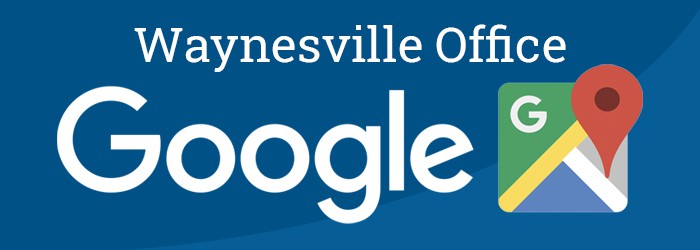
The best way to handle a North Carolina Allstate Insurance Claim
If you find yourself involved in an insurance claim with Allstate in North Carolina, it’s important to understand the best way to handle the situation. This article will provide you with the necessary information to navigate the claims process effectively. Understanding the Basics of Allstate Insurance Claims When it comes to Allstate insurance claims, prompt reporting is crucial. The sooner you report the incident to your insurance company, the better. This allows them to start the investigation process promptly and gather any necessary evidence. Insurance adjusters play a significant role in the claims process. They are responsible for evaluating the damages, determining liability, and negotiating settlements. It’s essential to understand their role and cooperate with them to ensure a smooth claims process. Additionally, when filing an Allstate insurance claim, it’s important to provide as much detail as possible about the incident. This includes information such as the date, time, and location of the event, as well as any relevant photos or documentation. The more information you can provide, the easier it will be for the insurance company to process your claim efficiently. Furthermore, it’s crucial to be aware of your policy coverage and limitations when dealing with Allstate insurance claims.

The best way to handle a North Carolina GEICO Insurance Claim
Understanding the Basics of GEICO Insurance Claims When it comes to handling a GEICO insurance claim in North Carolina, it is crucial to have a solid understanding of the basics. Insurance plays a vital role in protecting individuals, their assets, and providing peace of mind. However, navigating the claims process can sometimes be challenging without the right knowledge. Insurance companies like GEICO operate within a complex framework of laws and regulations that govern the insurance industry in North Carolina. These regulations are designed to ensure that policyholders are treated fairly and receive the coverage they are entitled to in the event of a claim. Understanding these regulations can help policyholders navigate the claims process more effectively and advocate for their rights. However, it is equally as important to understand that insurance companies make money by either not paying on claims, or paying an unfair amount. You need to know your rights to make sure you get compensation that you’re entitled to receive. The Role of Insurance in North Carolina In North Carolina, insurance serves as a safeguard against unexpected events, such as car accidents, property damage, or personal injuries. GEICO, one of the leading insurance companies in the state, offers

Can Prisoners Sue for Injuries in North Carolina?
In the United States, the rights and treatment of prisoners have long been a topic of debate and discussion. One important aspect of this debate is whether prisoners have the right to sue for injuries sustained while incarcerated. North Carolina, like many states, has specific laws and regulations governing this issue. In this article, we will explore the rights of prisoners to file lawsuits for injuries in North Carolina, the process for filing such lawsuits, the types of injuries that can be grounds for a lawsuit, the challenges faced by prisoners in suing for injuries, and the role of the Department of Corrections in addressing these issues. Understanding the Rights of Prisoners Before delving into the specific rights of prisoners to sue for injuries, it is important to have a basic understanding of the broader rights afforded to inmates. In the United States, prisoners do retain certain constitutional rights, although these rights can be limited due to the nature of their confinement. Prison life is a complex and multifaceted experience, where individuals are stripped of their freedom and placed under the control of correctional institutions. While the primary goal of incarceration is punishment and rehabilitation, it is essential to recognize

Can You File a Lawsuit for Pain and Suffering in North Carolina?
In North Carolina, individuals who have suffered physical or emotional harm due to the negligence or wrongdoing of another person may be able to file a lawsuit for pain and suffering. Understanding the legal concept of pain and suffering is crucial in determining whether you have the grounds for such a lawsuit. Understanding Pain and Suffering in Legal Terms Pain and suffering refers to the physical or emotional distress experienced by an individual as a result of an injury or accident. It encompasses not only the physical pain but also the mental and emotional anguish that may follow. Definition of Pain and Suffering In legal terms, pain and suffering encompasses the physical pain, emotional distress, and mental anguish experienced as a result of an injury or accident. This can include physical pain, psychological trauma, loss of enjoyment of life, and the inability to engage in daily activities. Types of Pain and Suffering Pain and suffering can be categorized into two main types: physical and emotional. Physical pain and suffering refers to the actual physical discomfort and pain endured by the victim. It can include a wide range of sensations, such as throbbing, stabbing, burning, or aching pain. The severity of

Are Wrongful Death Settlements Part of the Estate in North Carolina?
The issue of wrongful death settlements and their inclusion as part of an estate can be a complex and nuanced topic within the framework of North Carolina’s legal system. This article aims to unravel the intricacies surrounding the matter, providing a comprehensive understanding of the subject at hand. Understanding Wrongful Death Settlements Before delving into the specifics of wrongful death settlements inclusion in an estate under North Carolina law, it is first necessary to understand what a wrongful death settlement entails. This knowledge serves as the foundation for understanding this topic as a whole. When a loved one passes away due to the negligence or intentional act of another person, it can be an incredibly difficult and painful experience for the surviving family members. In addition to the emotional toll, there are often financial burdens that arise as a result of the loss. This is where wrongful death settlements come into play. Definition of Wrongful Death Settlements A wrongful death settlement can be best defined as a sum of money awarded to the survivors or the estate of a person who died as the result of someone else’s negligence or intentional act. It’s meant to compensate for the financial and

What Is Wrongful Death and Is It Considered a Personal Injury?
When one encounters unforeseen tragedies resulting in death, the situation leads to a plethora of emotions and legal complexities. This article aims to provide clear, concise, and simplified information about an important legal term – wrongful death and its relation to personal injury. Understanding the Concept of Wrongful Death Wrongful death involves situations where the negligent or intentional actions of an individual or entity result in another person’s death. This relatively broad field under the umbrella of personal law encompasses several aspects. However, its understanding requires a detailed look into its definitions and common causes. Definition of Wrongful Death A wrongful death, in legal terms, refers to when an individual’s actions, whether negligently or purposely, lead to the death of another person. This can occur in a myriad of situations, and the violating party may be an individual, a group of people, or an institution. Understanding the concept of wrongful death requires delving into the different legal elements that must be proven to establish liability. These elements typically include demonstrating that the death was caused by the defendant’s actions or inactions, proving negligence or intentional misconduct, and establishing the relationship between the defendant’s actions and the victim’s death. Additionally, wrongful

